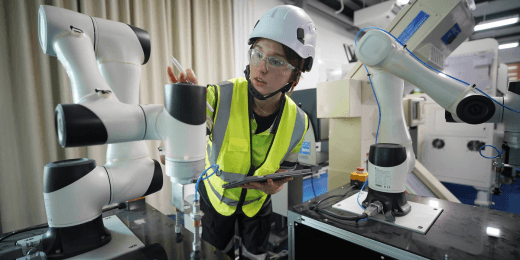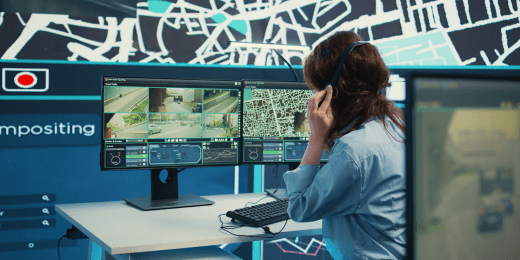A Guide to Life Cycle Assessments
Gain a better understanding of life cycle assessments, their importance, and some of the best ways to conduct one for your organization.

Published 30 May 2024
Article by
4 min read
What is a Life Cycle Assessment?
A life cycle assessment (LCA) is a methodology for evaluating a product’s environmental impact throughout its entire lifecycle. This includes gauging its impact from raw material extraction, processing, production, distribution, use, and disposal. Performing this assessment gives companies a definite idea of their products’ environmental impact, maintaining transparency within their organization, while also giving stakeholders the information they need to make smart environmental decisions moving forward.
Importance
LCAs are crucial for most organizations, as they primarily help companies measure the environmental impact of their products or services, from raw material extraction to disposal. This allows them to determine how efficient they are in using resources, helping them improve certain processes and make environmental decisions based on real-world data. Conducting an LCA also makes it easier for companies to do the following:
reduce their environmental impact;
abide by regulatory standards ;
promote more environmentally-conscious practices; and
show consumers that they are taking real steps towards a more sustainable future.
Nowadays, companies must put a major emphasis on their environmental impact. We live in a world where people must put immediate effort into helping the environment, which is why LCAs are important. On top of that, modern consumers prioritize supporting businesses with a real environmental effort, further cementing why LCAs are becoming a major priority for many businesses.
Stages of a Life Cycle Assessment
While LCAs may look slightly different depending on the company conducting them or the products being assessed, there are a few core stages that are present in every industry’s life cycle assessment. These are the following:
Stage 1: Goal and Scope Definition
All LCAs start with defining your goals and the scope of your assessment. Ask yourself what aspects of the product or process will be evaluated, and what environmental impacts will be considered. Once these are established, you can create a solid foundation for the rest of the LCA process.
Stage 2: Life Cycle Inventory
This phase involves compiling a detailed inventory of all inputs and outputs throughout the life cycle. Here, raw materials, energy consumption, emissions, and waste generation are meticulously documented.
Stage 3: Life Cycle Impact Assessment
A Life Cycle Impact Assessment (LCIA) evaluates the potential environmental impacts identified in the previous stage. During an LCIA, you and organization can quantify your products’ effects on air, water, land, and resources, providing a comprehensive overview of your ecological footprint.
Stage 4: Interpretation
The final stage of an LCA involves interpreting the results to draw meaningful conclusions and guide decision-making. Stakeholders can use this information to identify opportunities for improvement and implement sustainable practices.
Integrate ESG principles into your operations
Drive sustainable growth and create long-term value with our ESG solutions.
Best Practices
Conducing LCAs can be quite a cumbersome task. With all the factors to consider, it’s easy to get overwhelmed. However, these assessments are critical in determining environmental impact and making data-driven decisions for the future of the organization. So, here are a few of the best practices for conducting LCAs to put you on the right track:
Following the Cradle-to-Grave Method
The cradle-to-grave method is the best way of conducting an LCA. This simply means tracking the impact of a product or service from its inception (cradle) all the way to its death (grave). This involves assessing the full impact of your products, from the extraction of raw materials needed, to its proper disposal at the end of its life.
Utilizing Consistent and Transparent Data Processes
It is essential to have proper data collection techniques and technologies in order to conduct efficient LCAs. With the right collection processes and information management practices, you can ensure your data is consistent, fostering trust among stakeholders and enhancing the accuracy of environmental impact assessments.
This enables informed decision-making for sustainable practices, promoting transparency. It also facilitates the identification of potential biases or uncertainties, creating a more robust and credible evaluation of a product or process’s life cycle.
SafetyCulture (formerly iAuditor) is a platform for large organizations looking to take their LCAs to the digital world. With this digital tool, you can conduct your LCAs digitally, standardizing data collection processes and ensuring transparency within your organization. Through templated forms, smart analytical dashboards, and digital training courses all centralized in place, you can conduct efficient and consistent LCAs with ease, anytime and anywhere.
Updating Practices and Tools Regularly
It’s best for companies to utilize and leverage technology to their advantage when conducting LCAs. This means updating their practices and using the latest technology when conducting the assessments. When using digital platforms and other modern tools for your LCAs, you’ll find the process much simpler and more efficient.
Conduct Efficient and Accurate Life Cycle Assessments with SafetyCulture
Why use SafetyCulture?
SafetyCulture is a mobile-first operations platform adopted across industries such as manufacturing, mining, construction, retail, and hospitality. It’s designed to equip leaders and working teams with the knowledge and tools to do their best work—to the safest and highest standard.
SafetyCulture complements your organization’s efforts to implement and maintain ESG strategies. Through seamless data collection, real-time tracking, and reporting of your progress against sustainability goals, your organization can effectively drive sustainable growth and success.
✓ Save time and reduce costs ✓ Stay on top of risks and incidents ✓ Boost productivity and efficiency ✓ Enhance communication and collaboration ✓ Discover improvement opportunities ✓ Make data-driven business decisions
FAQs about Life Cycle Assessments
Related articles
Operations
Business Processes

Understanding the Importance of Process Automation Reliability
Learn how reliable process automation is key to safe, consistent operations and how it minimizes quality and compliance risks.
Logistics
Operations

Transportation and Logistics: What’s the Difference?
Learn about the importance of transport and logistics within the supply chain and how it is used in business operations.
Logistics
Operations

An Overview of Transport Network Analysis
Learn about transport network analysis and how network-level insight improves reliability and reduces operational risk.